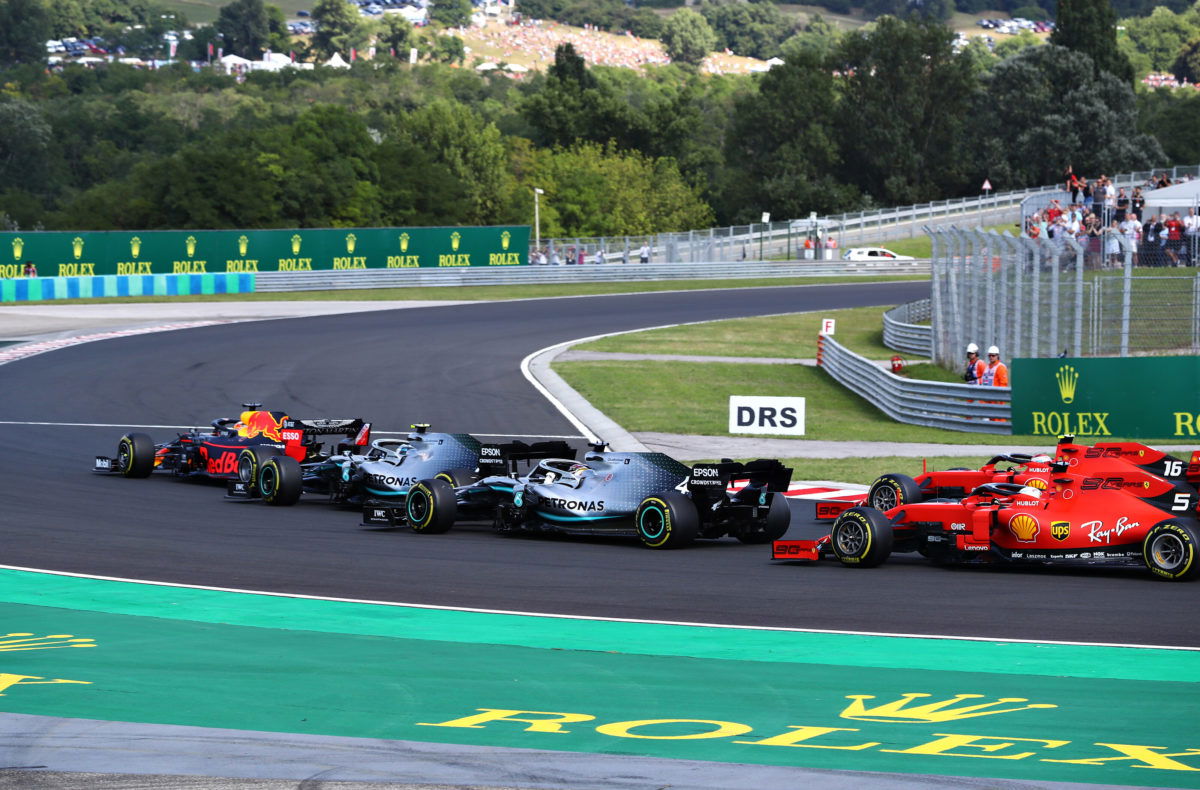

Teams are concerned the delay in finalising Formula 1’s technical regulations for the 2021 season will result in ‘rough’ and rushed designs.
Discussions over the technical regulations have been protracted, with a May deadline already pushed back until October.
However, things are still far from resolved leaving teams concerned that, with the clock still ticking, it will not afford them the time needed to fully refine their concepts.
“We could make up the time for most of the items, you will just deliver something a bit more rough and I think in that specific case it’s probably more important that we get the regulations right, even if it comes at a later stage,” said Ferrari sporting director Laurent Mekies.
“If it means something is delayed to the following years, (it’s better) than to have something early that we are then not happy with.
“On that front we have been pretty much repeating the same thing all the way through.”
The sport is looking not only to spice up the show but also reduce costs, with a move towards standardised parts among one of the methods being discussed.
However, that’s at odds with Ferrari’s view on the sport.
“We always felt that Formula 1 DNA was having very different cars and therefore the idea of having some areas very much standardised and some other areas with more limitation is something that we are still hoping to get into better place for 2021,” added Mekies.
“We are a bit more nervous and cautious for what it means for Formula 1 when it comes to getting the cars to look alike or getting the cars to be having a lot more standard parts. That’s basically where the difference lies.
“We could also add that, ironically, to get ready for these 2021 regulations has actually a significant cost implication when it comes to the R&D work that needs to be done. You have to run different programmes in parallel and it comes at a cost.”
The reduced lead time for teams’ design offices is a challenge, but not an insurmountable one according to James Allison.
The Mercedes technical director believes that, while ideally the regulations would be in place now and teams would be able to start work, they’ll ultimately manage to produce something regardless.
“There’s always enough time, it just depends on the quality of what you do changes, depending on how much time you have,” Allison reasoned.
“There was a time, I’m sure you remember, where the Brawn team managed to put a brand new engine in their car and win a championship in a matter of a few weeks, because they had to do it.
“So you can do a lot of things in a short amount of time but the standard lead-time for working on a new car is a little over a year so you want to be working sort of November/December of the year before the year before so 14 months or so.
“A bigger rule change you would maybe want a bit more of a run-up at it than that, but if there was less time you would still do it, it would just be a bit more of a finger in the air job,” he continued.
“The discussions about what the regulations will be are still ongoing, so you don’t want to get into too much detail, but the concerns do all fall in the striking (of) the right balance between the desire of a team to be able to produce performance by good design, by good engineering and the desire of the sport to equalise out things.
“The sport is, to a degree, a Darwinian competition and that’s part of its spice and there needs to be a good balance struck between the desire of the individual teams to fight for their best opportunities and the desire maybe of the owners to level everything out and have it that sort of any team on any day could win.”
Red Bull’s Paul Monaghan believes it would be better for the regulation deadline to be extended further rather than trying to rush them through.
“It would be preferable to have rules that we all agree on before we embark,” said Monaghan.
“If that pushes it back a little bit, we can still do a car and whoever’s finger is lucky in the air may well be lucky at the start of the season, you never know.
“It would also depend on how we chose to divvy up our resources for the 2020 car.
“So we have our own resources to deploy and the time question, well, it’s the same for all of us once we get going and we’ll do it.”
“We have concerns over the draft regulations,” Monaghan added.
“As has been discussed, the negotiation is ongoing and if we don’t participate we can’t influence it.
“If we have concerns, we will raise them. If they are the same as Ferrari’s then it probably adds to the argument.
“But yes, there are concerns as to the nature of the rules and the drafting thereof.”




















Discussion about this post